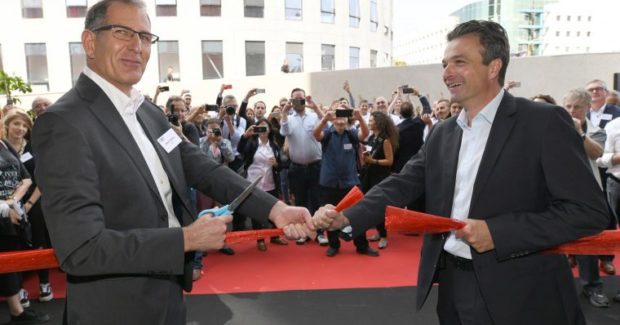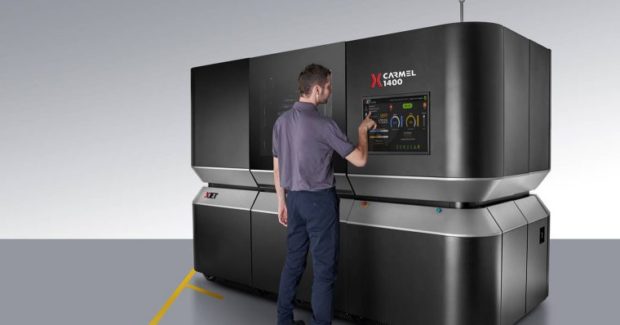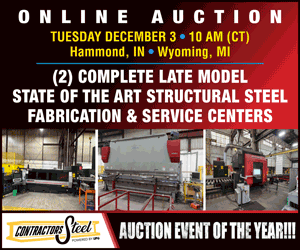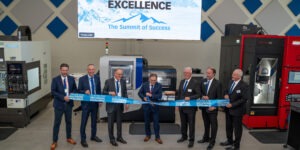World’s Largest Metal AM Center Opens
The $10 million Additive Manufacturing Center of XJet houses the largest collection of metal and ceramic 3D printers in the world.
Posted: November 14, 2018
XJet Ltd. (Rehovot, Israel) opened the doors of a new cutting-edge Additive Manufacturing Center in a Grand Opening event that was witnessed by a spectrum of their stakeholders, including local suppliers, global customers, and more than 100-strong employees. With an investment of over $10 million, this 8,000 sq ft facility in Rehovot Science Park is home to the largest collection of metal and ceramic 3D printers worldwide, comprised entirely of Carmel AM systems.
This ground-breaking AM Center will support XJet in developing new 3D printing materials and applications. “This is a crucial part of our pursuit for wide-ranging multi-material printing,” explained chief executive officer Hanan Gothait. “Carmel AM systems are currently available with one of two printing materials, stainless steel or zirconia. Our vision is a platform that prints with a multitude of metals and ceramics on the same part. We will use this AM Center to develop and demonstrate specialized applications, print test parts for our global customer base, and trial new metal and ceramic materials. We have very high goals and expectations for this facility and have placed our best resources here, led by Dr. Ophira Melamed. Under her expert guidance, I’m very excited to see what the AM Center will deliver.”
This inauguration follows less than a year from the commercial launch of XJet’s first AM system and follows hot on the heels of the appointment of their first distributor, Carfulan Group (Derby, England) who also attended the event and caught a glimpse of their first Carmel AM system that will be shipped to them by the end of the year. Using the company’s patented NanoParticle Jetting™ (NPJ) technology, the Carmel AM series allows manufacturers to produce ceramic or metal parts with the ease and versatility of inkjet printing. Due to its unique approach, NPJ technology produces highly complex parts with superfine details, smooth surfaces and pinpoint accuracy. Remarkably thin layers of just a few microns can be achieved, compared to dozens of microns in powder-based ceramic and metal AM technologies. Cavities and fine details can be created with no concern that they will be harmed in the support-removal process, as a separate material is used for support structures, a material that easily disintegrates post printing.
Guests at the Grand Opening were able to take a tour of the facility and see the 3D printers running live, observe how easy it is to remove support structures, talk to customers and employees. In addition, Professor Oded Shoseyov, TED speaker and winner of the Israeli Prime Minister’s Prize for Initiatives and Innovation, gave a talk on The Plant Age: Materials of the Future.
















